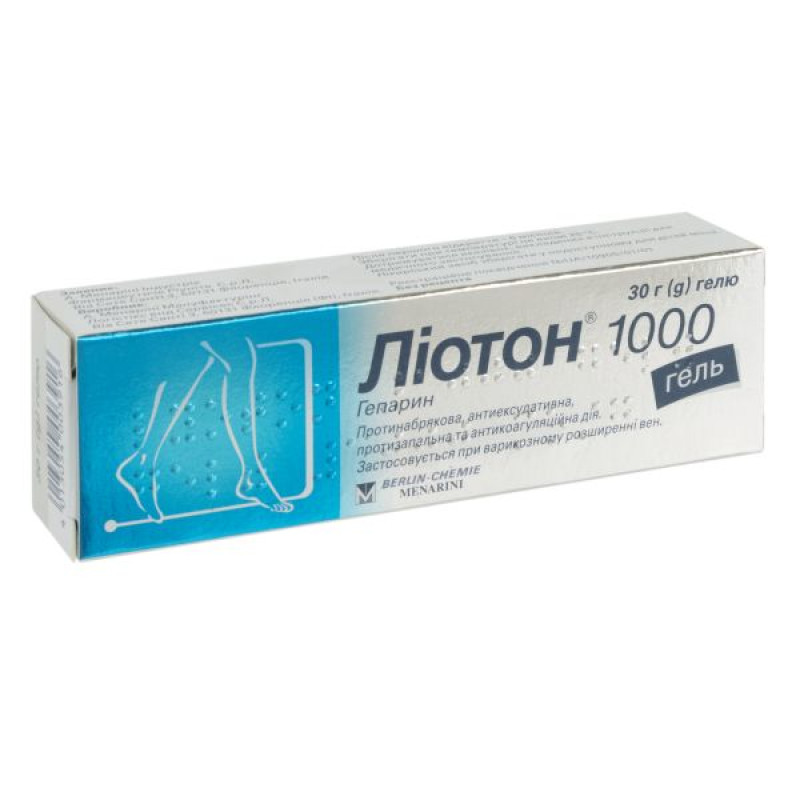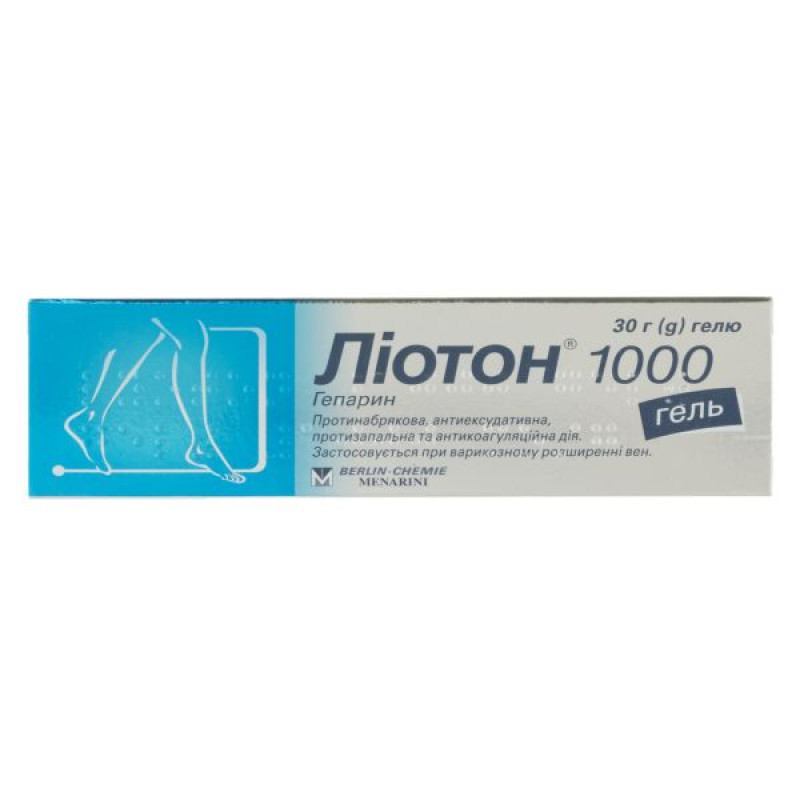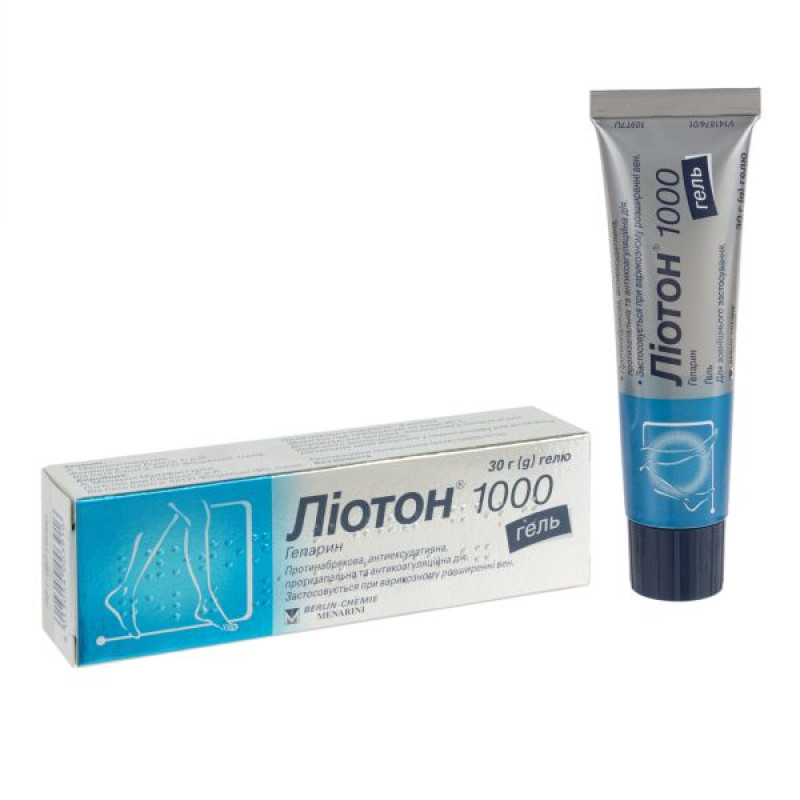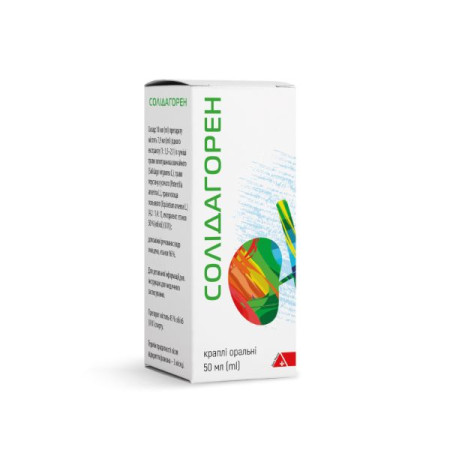Lyoton 1000 gel tube 30 g

Instructions for Lyoton 1000 gel tube 30 g
Composition
active ingredient: 1 g of gel contains 1000 IU of heparin sodium salt;
excipients: ethanol 96%, carbomer 940, triethanolamine, methylparaben (E 218), propylparaben (E 216), neroli oil (contains linalool, d-limonene, geraniol, citral, citronellol and farnesol), lavender oil (contains linalool, d-limonene, geraniol and coumarin), purified water.
Dosage form
Gel.
Main physicochemical properties: colorless or with a slightly yellowish tinge, almost transparent gel of viscous consistency, with a pleasant odor.
Pharmacotherapeutic group
Agents used for varicose veins. Heparins or heparinoids for topical use. ATX code C05B A03.
Pharmacological properties
Pharmacodynamics.
Lyoton® 1000 gel, when applied to the skin, has an anti-edematous, anti-exudative, anti-inflammatory and anticoagulant effect.
Pharmacokinetics.
Heparin is detected in the blood plasma within 24 hours after application of the drug, with the peak concentration of heparin being reached after 8 hours. Excretion occurs mainly by the kidneys. Lyoton® 1000 gel applied to the skin does not affect blood coagulation parameters.
Indication
Treatment of superficial vein diseases such as varicose veins and related complications, phlebothrombosis, thrombophlebitis, superficial periphlebitis. Postoperative varicose phlebitis, complications after surgical removal of the saphenous veins of the lower extremities. Injuries and bruises, infiltrates and localized edema, subcutaneous hematomas. Injuries and sprains of the musculo-tendon and capsulo-ligamentous structures.
Contraindication
Hypersensitivity to heparin or any other component of the drug, bleeding trophic leg ulcers, open and/or infected wounds, hemorrhagic diathesis, purpura, thrombocytopenia, hemophilia, bleeding tendency.
Interaction with other medicinal products and other types of interactions
Heparin may prolong prothrombin time in patients receiving oral anticoagulants. It should not be used with topical medications, such as those containing tetracycline, hydrocortisone, salicylic acid, or anticoagulants.
Application features
If the patient has hemorrhagic symptoms, the possibility of using the drug Lyoton® 1000 gel should be carefully considered. The drug should not be prescribed for bleeding, applied to open wounds, mucous membranes, infected areas of the skin or in the presence of purulent processes, in the eyes and areas around the eyes, on ulcers and blisters. In case of blood clotting disorders, the gel is not recommended to be applied to large areas of the skin. In the case of treatment of phlebitis, this drug should not be rubbed into the skin.
Lioton® 1000 gel contains methyl parahydroxybenzoate (E 218), propyl parahydroxybenzoate (E 216) as preservatives, which may cause allergic reactions (may occur over time).
The medicine contains aromatic substances with citral, citronellol, coumarin, d-limonene, farnesol, geraniol and linalool. Citral, citronellol, coumarin, d-limonene, farnesol, geraniol and linalool may cause allergic reactions.
Use during pregnancy or breastfeeding
There are no data on the use of the drug during pregnancy or breastfeeding.
Ability to influence reaction speed when driving vehicles or other mechanisms
The drug does not affect the ability to drive or operate machinery.
Method of administration and doses
Adults should use the drug 1–3 times a day. Apply to the affected area of the skin.
Apply 3–10 cm of gel and distribute with light massage movements. The duration of treatment is determined by the doctor individually, taking into account the severity of the disease.
Children
Given the limited experience of use, the drug should not be prescribed to children.
Overdose
Overdose phenomena have not been described so far. Due to the low systemic absorption, there is no risk of overdose with topical application. Accidental oral administration of the gel (e.g. by a child) may cause nausea or vomiting. In this case, the stomach should be washed and, if necessary, symptomatic therapy should be prescribed. The effect of heparin can be neutralized with protamine sulfate.
Adverse reactions
When applied to the skin, allergic reactions to heparin occur very rarely (less than 1 in 10,000 patients treated). However, in isolated cases (frequency unknown: cannot be estimated from the available data), hypersensitivity reactions may occur, especially with prolonged use, such as redness, itching, swelling of the skin, burning sensation, skin rash, urticaria, angioedema, hemorrhages, rarely - the appearance of small pustules, blisters or blisters, which quickly disappear after discontinuation of the drug. When applied to large areas of skin, systemic adverse reactions are possible.
Reporting suspected adverse reactions after a medicine has been authorised plays an important role. This allows for continued monitoring of the benefit-risk balance of the medicine. Healthcare professionals should report any suspected adverse reactions.
Expiration date
5 years. After first opening – 6 months.
Do not use the drug after the expiration date indicated on the package.
Storage conditions
Store at a temperature not exceeding 25 ° C. Keep out of the reach of children.
Packaging
Tube of 30 g or 50 g or 100 g of gel; 1 tube in a cardboard box.
Vacation category
Without a prescription.
Producer
A. Menarini Manufacturing Logistics and Services S.r.L.
Location of the manufacturer and address of its place of business
Via Sete Santi 3, 50131 Florence (FI), Italy.
Applicant
A. Menarini Industrie Farmaceutiche Riunite S.r.L.
Applicant's location
Via Sete Santi 3, 50131 Florence, Italy.
There are no reviews for this product.
There are no reviews for this product, be the first to leave your review.
No questions about this product, be the first and ask your question.


















